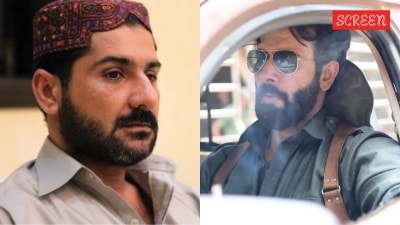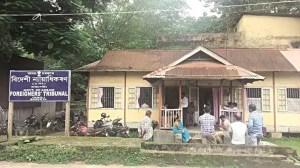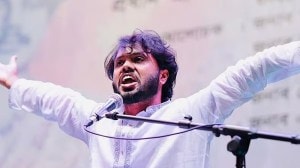In June last year, a five-judge Constitution Bench ruled that decisions of the Delhi government will not require the concurrence of the Lieutenant-Governor, except in matters relating to Land, Home and Public Order. That judgment was silent on matters relating to services and other issues. On Thursday, a two-judge Bench of the Supreme Court ruled on five crucial issues.

Entry 41 of List II deals with “State Public Services” and “State Public Service Commission”. The two-judge Bench was split in its verdict on this aspect.

Justice A K Sikri: He said that it is “undisputed” that the State PSC does not exist in NCTD, and that it is “also doubtful” to note All India Services and DANICS (Delhi, Andaman and Nicobar Islands Civil Service) as State Public Services. He referred to Rule 2(c) of the IAS (Cadre) Rules, 1954 (‘State’ includes a Union Territory); Rule 7 (in the case of ‘joint cadre’, as in NCTD, “posting shall be by the State Government concerned”); and Rule 11 of DANICS Rules, 2003, which “empowers Administrator of the administration concerned” to make these postings. Justice Sikri also referred to the Constitution Bench’s observation that “in the context of NCTD, the Administrator, namely LG, is supposed to function in this behalf on the aid and advice of the Council of Ministers”. He observed that it “becomes equally doubtful as to whether” services falls within the discretionary powers of the LG, and that, in the view of the Constitution Bench, “it cannot be said that once the manpower is allocated to Union Territory of Delhi, the GNCTD (Government of NCTD) should not have any power to deal with such employees”.
To “avoid any conflict of exercise of powers” between the LG and the Council of Ministers with Chief Minister, Justice Sikri expressed the opinion that “it is necessary to carve out a just and fair mechanism”. He made some “suggestions”: transfers and postings of Secretaries, Heads of Departments and other officers at the level of Joint Secretary to the Government of India and above “can be done by the Lieutenant Governor” ; at other levels, including DANICS officers, “the files can be routed through the Chief Minister to Lieutenant Governor”. “In case of difference of opinion between the Lieutenant Governor and the Chief Minister, the view of the Lieutenant Governor should prevail and the Ministry of Home Affairs can issue a suitable notification in this regard,” he suggests.
 Delhi Chief Minister Arvind Kejriwal and his deputy Manish Sisodia meet Lt Governor Anil Baijal, in New Delhi on Friday, July 6, 2018. (PTI Photo)
Delhi Chief Minister Arvind Kejriwal and his deputy Manish Sisodia meet Lt Governor Anil Baijal, in New Delhi on Friday, July 6, 2018. (PTI Photo)
Justice Ashok Bhushan: He did not “entirely agree” with Justice Sikri on Services, but agreed that Entry 41 “is not available to the Delhi Legislative Assembly”. Justice Bhushan cited extensively from the Balakrishnan Committee Report (1987) on the status of Delhi that led to the 69th Constitution (Amendment) Act. “Balakrishnan Committee Report… categorically has accepted the position that Entry 41 of List II shall not be within the Legislative competence of Delhi Legislature, which conclusion was plausible, since the Legislative power of the Delhi Legislative Assembly was circumscribed by the expression ‘insofar as any such matter is applicable in relation to Union Territories’ as occurring in Article 239AA(3),” he observed.
Referred to a Constitution Bench verdict in Bir Singh (2018), Justice Bhushan observed that “services in the National Capital Territory are clearly Central Civil Services”. “With regard to ‘Services’, NCTD can exercise only those Executive powers, which can be exercised by it under any law framed by the Parliament or it may exercise those Executive powers, which have been delegated to it,” he ruled.
Story continues below this ad
2. Exclusion of the jurisdiction of the Anti-Corruption Branch (ACB) of the NCTD to investigate offences under the Prevention of Corruption Act by officials of the Central Government, limiting the jurisdiction of the ACB to GNCTD employees alone
Justice Sikri stressed that police and public order stand excluded from the purview of GNCTD and is the “exclusive domain of the Parliament/ Central Executive.” The term ‘police’ as in Entry 2 of List II cannot be “artificially restricted or limited” to only constitution of the police force; the entry “would also include the determination as to the nature and scope of investigations to be done by the Police”. And therefore, he observed, “while establishing the ACB as a Police Station, it would be permissible to circumscribe and limit the investigation sphere of the ACB”.
Noting that “parallel jurisdiction to investigate… would result in chaos and anarchy and would frustrate the very purpose of investigation”, he ruled: “This leads us to hold that the Government which has competence over Entry 2 List II would have power to segregate and demarcate the jurisdiction to investigate as between two police forces. Hence the impugned notifications are valid.”
The rationale in excluding Entry 2 from GNCTD’s jurisdiction is so that “there is no confusion or overlap of the jurisdiction in regard to the focal point of control and coordination”, he observed. “The only effect is that the ACB is not empowered to investigate into the offences of Central Government employees under the Prevention of Corruption Act. Admittedly, this investigation is carried out by the CBI. Therefore, it obviates the duality and conflict of jurisdiction as well.”
Story continues below this ad
3. Is GNCTD an ‘appropriate Government’ under the Commission Of Inquiry Act?
Justice Sikri, relying on the Constitution Bench verdict, said he is “unable to accept” the stand of the Delhi government that the expression ‘State Government’ occurring in Section 2(a) of the COI Act would mean GNCTD, a Union Territory. “It is not for us to deal with the argument that Entry 45 of List III confers legislative and executive competence on GNCTD and, therefore, GNCTD can pass an appropriate order appointing a Commission of Inquiry in exercise of its executive power. In the instant case, we are concerned with notification dated August 11, 2015 which is passed under the COI Act. We, therefore, uphold the judgment of the High Court on this aspect,” Sikri ruled.
4. Whether, under Section 108 of Electricity Act, 2003, the power to issue directions with the State Commission is with GNCTD
Justice Sikri said the Delhi government “has power to issue directions to the DERC in matters of policies involving public interest”. “When such powers are conferred specifically to Delhi Government under DER Act, it cannot be said that insofar as Section 108 of the Electricity Act, 2003 is concerned, the expression ‘State Government’ therein would mean the Central Government,” Justice Sikri ruled.
Story continues below this ad
5. The power to appoint the Special Public Prosecutor under Section 24 of CrPC — L-G or state government?
Justice Sikri said the High Court “has rightly held that in respect of these entries”, the Government of NCT of Delhi has “legislative competence” under Article 239AA of the Constitution and that the LG under Article 239AA(4) of the Constitution “shall act on the aid and advice of the Council of Ministers”. “This conclusion of the High Court is in tune with the judgment of the Constitution Bench. We, therefore, hold that Lieutenant Governor, while appointing the Special Public Prosecutor, is to act on the aid and advice of the Council of Ministers.”
Don’t miss: How China stood in India’s way to list JeM chief Maulana Masood Azhar as ‘global terrorist’

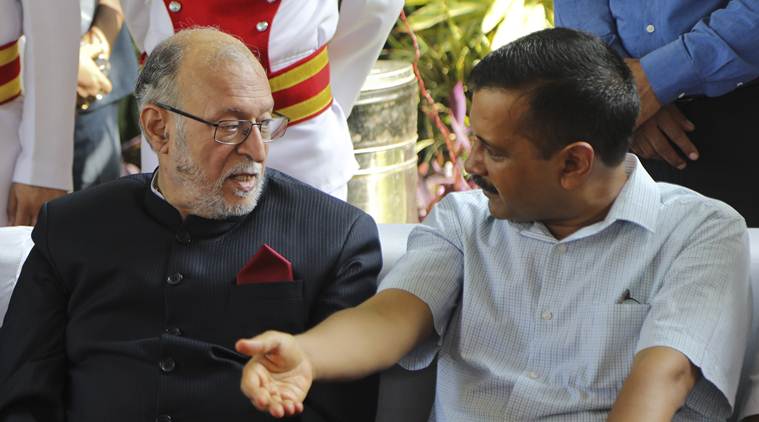 Lt-Gen Anil Baijal with Chief Minister Arvind Kejriwal in 2018. (Express photo by Abhinav Saha/archive)
Lt-Gen Anil Baijal with Chief Minister Arvind Kejriwal in 2018. (Express photo by Abhinav Saha/archive)

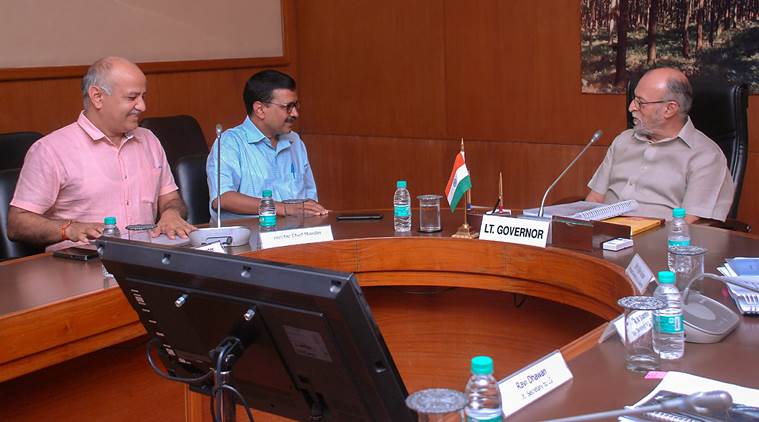 Delhi Chief Minister Arvind Kejriwal and his deputy Manish Sisodia meet Lt Governor Anil Baijal, in New Delhi on Friday, July 6, 2018. (PTI Photo)
Delhi Chief Minister Arvind Kejriwal and his deputy Manish Sisodia meet Lt Governor Anil Baijal, in New Delhi on Friday, July 6, 2018. (PTI Photo)
